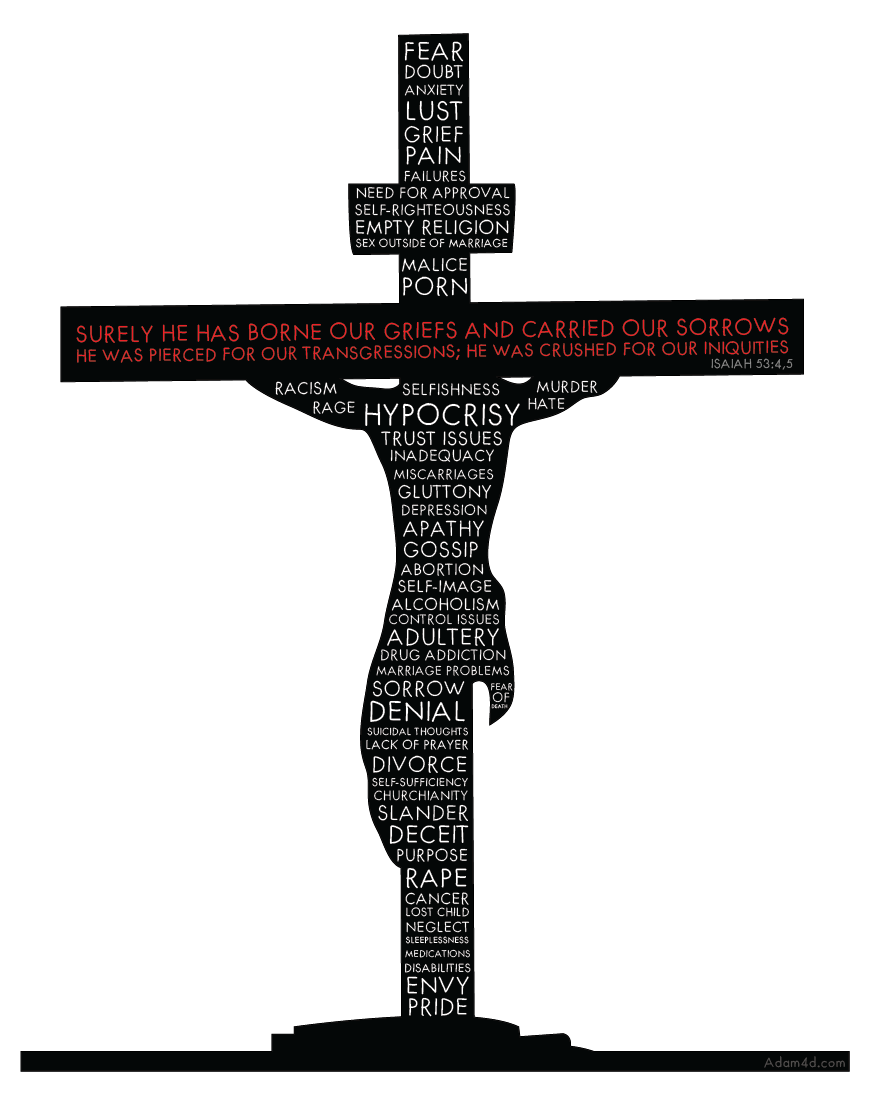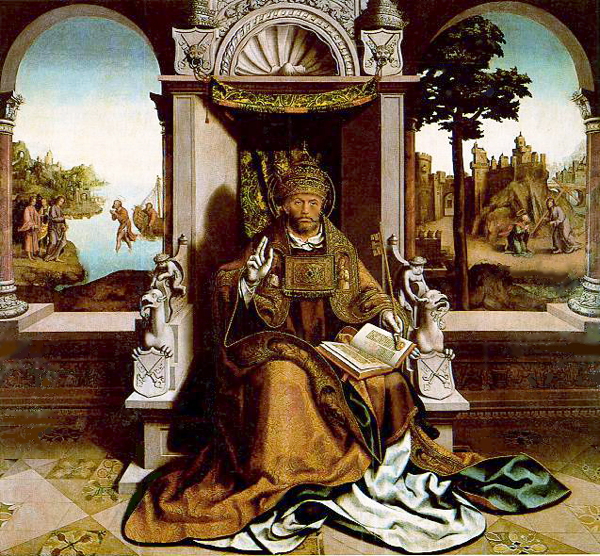
-please click on the image for greater detail.
-by Rev Gabriel of St Mary Magdalen, OCD, Divine Intimacy, Baronius Press, (c) 1964
Presence of God – O Holy Spirit, teach me the value of suffering, so that I may esteem it and love it as a means of sanctification.
MEDITATION
We must be thoroughly convinced that if the Holy Spirit works in our souls to assimilate us to Christ, He can do so only by opening to us the way of the Cross. Jesus is Jesus Crucified; therefore, there can be no conformity to Him except by the Cross, and we shall never enter into the depths of the spiritual life except by entering into the mystery of the Cross. St. Teresa of Jesus teaches that even the highest contemplative graces are given to souls only in order to enable them to carry the Cross. “His Majesty,” says the Saint, “can do nothing greater for us than to grant us a life which is an imitation of that lived by His beloved Son. I feel certain, therefore, that these favors are given to us to strengthen our weakness, so that we may be able to imitate Him in His great sufferings” (Interior Castle also known as The Mansions, VII, 4). Yes, conformity to Jesus Crucified has more value and importance than all mystical graces! The whole spiritual life is dominated by the Cross and, as the Cross is the central point in the history of the world, so it is the central point in the history of every soul. The Cross gave us life; it will imprint upon our souls the traits of the most perfect resemblance to Jesus; the more we share in His Cross, the more shall we resemble Him and cooperate in the work of Redemption.
In order to attain sanctity, it is evident that we need the Cross. To accept God’s will always and in every circumstance implies the renouncement of one’s own will; it is impossible to be conformed to Jesus in everything, “Who in this life had no other pleasure, nor desired any, than to do the will of His Father” (John of the Cross, Ascent of Mount Carmel I; 13,4), without renouncing one’s own selfish pleasures. And all this means: detachment, crosses, sacrifice, self-denial. It means setting out steadfastly on the way indicated by Jesus Himself: “If any man will come after Me, let him deny himself, and take up his cross and follow Me” (Matthew 16:24). This is the path which the Holy Spirit urges and invites us to follow. Whenever we find ourselves looking for things that are easier, more commodious, or more honorable; whenever we notice that we are satisfying our self-love, our pride, or see that we are attached to our own will, let us remind ourselves that all this is far removed from the inspirations of the Holy Spirit and, what is worse, it is an obstacle to His action in us.

-please click on the image for greater detail.
COLLOQUY
“O Spirit of truth, make me know Your Word; teach me to remember all He has said; enlighten me, guide me, make me conformable to Jesus as an ‘alter Christus,’ another Christ, by giving me His virtues, especially His patience, humility, and obedience; let me take part in His redemptive work by making me understand and love the Cross.
“O Holy Spirit, I come before You like a little green fruit which will ripen in the sun, like a bit of straw which is to be burned, like a drop of dew to be absorbed by the sun, like an ignorant child who must be taught. O Holy Spirit, giving Yourself to little souls, poor and humble, I present myself to You as one of these, and in this disposition I invoke You: ‘Veni, Sancte Spiritus, sanctifica me!’ Come, Holy Spirit, sanctify me! My desire for holiness is so great! Sanctify me Yourself; make haste to make me holy and a great saint, without my knowing it, in the self-effacement of my daily life.
“I wish to cast myself into You, O Holy Spirit, divine Fire, so that You will complete my purification, destroy my miserable self-love and transform me wholly into love. It is for this that I beseech You to come upon me and direct me according to Your good pleasure. ‘Dirige ados nostros in beneplacito tuo.’ Direct our actions according to Your good pleasure.
“O consuming Fire, divine Love in person, inflame me, burn me, consume me, destroy all self-love in me, transform me entirely into love, bring me to the ‘nothing’ that I may possess the ‘All’; bring me to the summit of the ‘mountain’ where dwells only the honor and glory of God, where all is ‘peace and joy’ in You, O Holy Spirit! Grant that here below—through suffering and loving contemplation—I may arrive at the most intimate union with the Blessed Three, until I go to contemplate Them in the face-to-face vision of heaven, in the peace, joy, and security of the ‘perpetual banquet’” (Sr. Carmela of the Holy Spirit, O.C.D.).”
Love & strength to endure all the crosses we must endure. Put your faith in Him, and NEVER WAIVER!!!! Be as rock!!! The ultimate thing Satan desires is our despair!!!! Resist him!! Solid in your faith!!!,
Matthew













